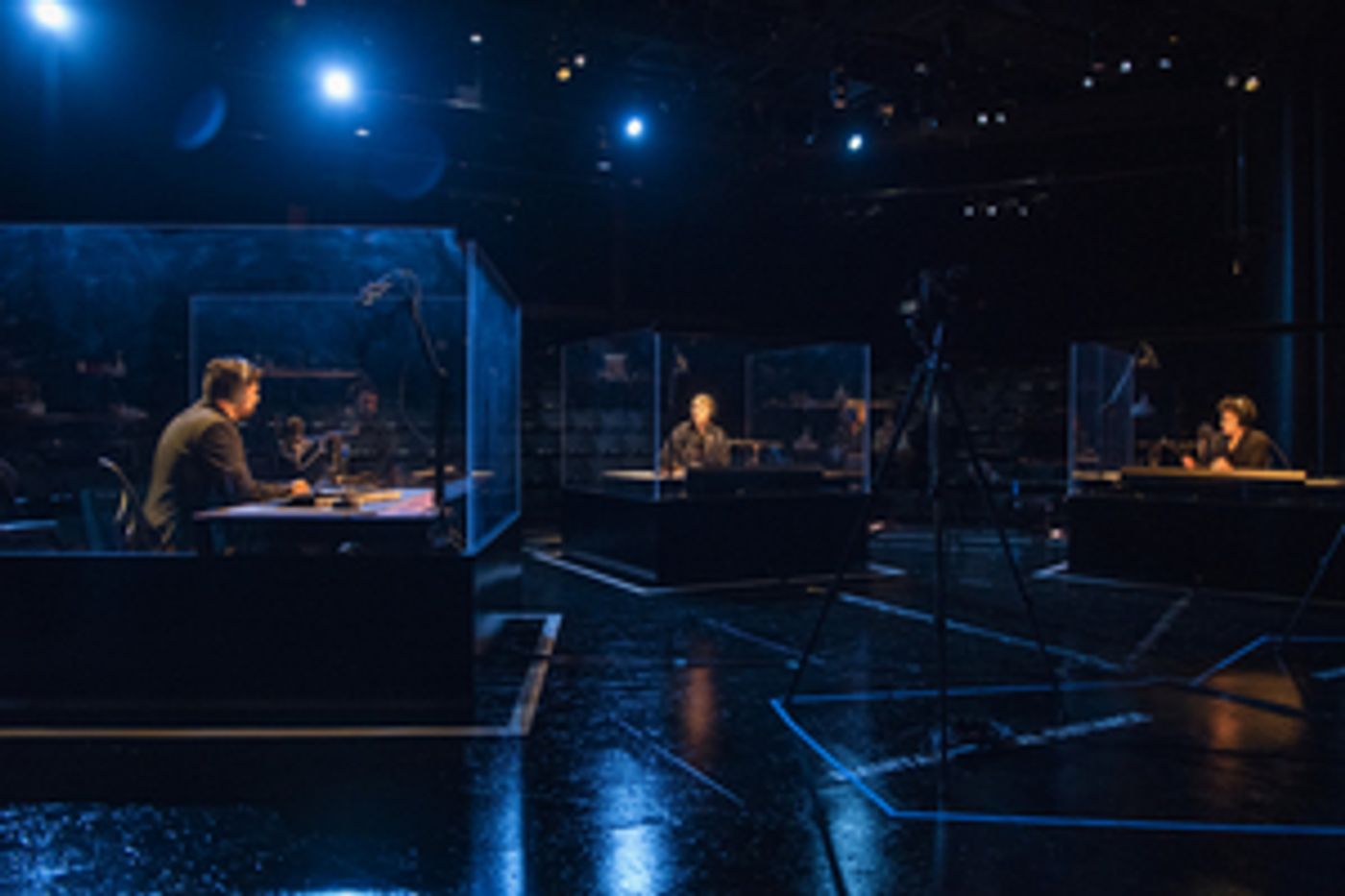Review: TITANIC (SCENES FROM THE BRITISH WRECK COMMISSIONER'S INQUIRY, 1912) at Court Theatre
Playwright Owen McCafferty poignantly dramatizes eyewitness accounts of the Titanic’s sinking.

Believe it or not, there are a few millennials whose impressions of the Titanic were not formed by Kate Winslet and Leonardo DiCaprio. Well, there's at least one. Not having seen the film until I was in my 20s, my earliest memories of the Titanic story come from a picture book about Robert Ballard's 1985 discovery of the shipwreck. The ghostly images of twisted steel and deteriorating personal belongings strewn across the ocean floor morbidly sparked my childhood imagination, to the bemusement of my preschool teacher, and I've remained a Titanic history nerd ever since.
Regardless of whether James Cameron or Robert Ballard is your guide of choice, the sinking of the Titanic is a historical event so deeply embedded in the cultural psyche that it has taken on near-mythical qualities, which can overshadow the true stories of individual bravery, fear, and suffering that played out in the northern Atlantic on the night of April 14-15, 1912.
In Titanic (Scenes from the British Wreck Commissioner's Inquiry, 1912), playwright Owen McCafferty revives a handful of eyewitness accounts through powerful prose drawn from the pages of history. Based on the British investigation into the shipwreck, which took place concurrently with hearings in the United States Senate, the play dramatizes the testimony of Titanic survivors, including the senior-most surviving officer, several crew members, and two wealthy first-class passengers.
With this approach, McCafferty invites the viewer to observe history unfold as if in real time. The survivors' words, presented as they were spoken mere weeks after the tragedy, ring with intensity and pathos. A lookout describes the towering, black mass of the iceberg as it appeared out of the darkness. The chief baker recalls the crashing sound of buckling steel as the ship began to split in half. And the cries of the victims stranded in the ice-cold water are a recurring theme.
A sense of ambivalence emerges as the investigation probes the causes of the disaster and the actions of individuals on that fateful night. Why was the ship traveling at high speed despite warnings of ice? Why did the stewards reassure third-class passengers that all was well after the collision, instead of beginning evacuation? Why did some lifeboats embark with only a handful of passengers, and why didn't they return to save more people from drowning after the ship went down? Amid conflicting testimony and hostile exchanges between the survivors and inquiring officials, the viewer is left to weigh the trustworthiness of each witness.
Vanessa Stalling directs Court Theatre's digital production, which features an ensemble cast sharing 15 roles. The video feed is split into five frames throughout the play: three close-ups, a wide shot, and an aerial view of the actors, who sit in audio isolation booths and speak into microphones. Stalling doesn't try to hide the unusual circumstances in which the production was filmed but rather allows behind-the-scenes glimpses of health precautions. During scene changes, actors don masks and stage crew members sanitize the recording booths.
Due to the static camera angles and the simple blocking, the sound design and music - both by Mikhail Fiksel - take on especially prominent roles. A string quintet evokes the 'band' (actually a string ensemble) that famously went down with the Titanic, while electronic music underscores the most intense moments. In his sound design, Fiksel poignantly employs voiceover based on telegrams that were sent to and from the ship, ranging from loving familial greetings to dire SOS calls.
No single play could provide a comprehensive historical account of the Titanic disaster, and there are key voices missing from McCafferty's text. For example, no third-class passengers testified at the British Wreck Commissioner's Inquiry upon which the play is based (the U.S. Senate Inquiry summoned only two third-class survivors). Rather, the strength of McCafferty's play lies in the moving experience of hearing historical characters speak for themselves, recalling events that were only weeks-old memories for them but still loom so large in our culture more than a century later.
TITANIC (SCENES FROM THE BRITISH WRECK COMMISSIONER'S INQUIRY, 1912) is streaming through July 11. Tickets start at $20 and are available at www.courttheatre.org.
Reader Reviews
Videos

